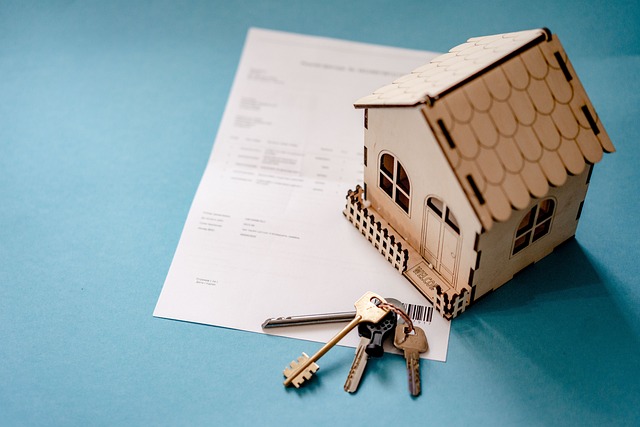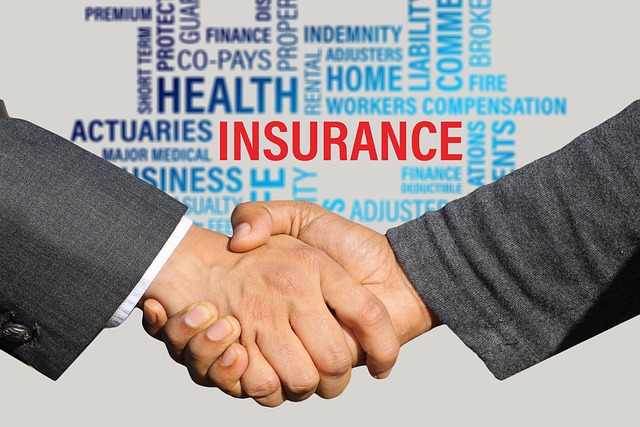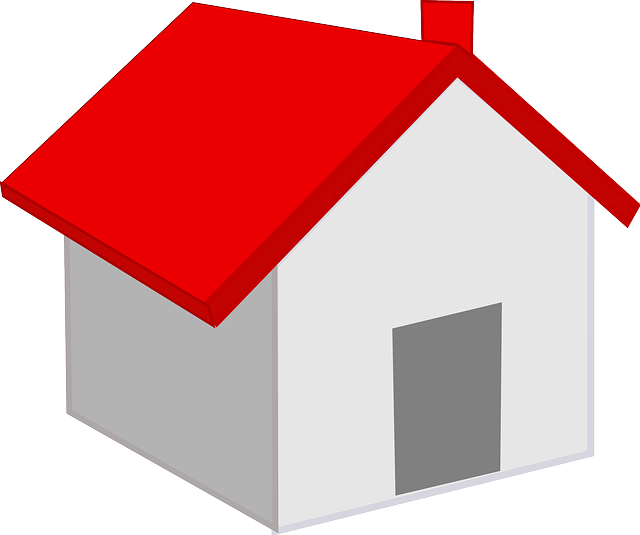Business Property Insurance is a crucial safety net, protecting against unforeseen events like fires, thefts, natural disasters, and more. It covers buildings, fixtures, equipment, and inventory, offering financial support for repairs and replacements, as well as business interruption expenses. A comprehensive risk assessment is key to selecting suitable coverage, considering industry-specific, location-based, and operational hazards. By understanding different policy types, asset values, and potential risks, businesses can tailor their insurance plans. Business interruption insurance is an essential add-on, protecting income streams during closures. Special features like extended equipment or inventory coverage further enhance protection. After a loss, promptly initiate a claim with your insurer, gathering documents and providing incident details. Stay informed about policy updates to ensure evolving protection for your commercial property and assets.
In today’s unpredictable business landscape, securing your assets is paramount. Business Property Insurance Plans offer crucial protection against unforeseen events that could cripple your operations. This comprehensive guide delves into the intricacies of property insurance, exploring essential aspects like coverage for fire, storms, and beyond. From understanding policy types to assessing risks, choosing the right coverage, and navigating claims processes, we equip you with knowledge to safeguard your business investments. Discover how special features can enhance your policy and stay informed about industry updates, ensuring peace of mind and resilience.
Understanding Business Property Insurance: What It Covers

Business Property Insurance is a safety net for your company’s physical assets, offering protection against unexpected events that could disrupt or damage your operations. This type of insurance covers a wide range of perils, including fire, theft, vandalism, and natural disasters like floods or earthquakes. It also provides liability coverage, shielding your business from financial loss if someone is injured on your premises or if you’re found legally responsible for damages.
When you purchase Business Property Insurance, you are essentially insuring the physical structure of your business, as well as any fixtures, equipment, and inventory stored within. This includes the cost to repair or rebuild the property, replace lost or damaged belongings, and even business interruption expenses if your operations are temporarily halted due to a covered event. Understanding what’s included in your policy is crucial to ensuring adequate protection for your investment and peace of mind as you run your business.
Types of Property Damage: Fire, Storms, and Beyond

Property insurance plans are designed to protect businesses from various forms of property damage, ensuring financial stability in unforeseen circumstances. When it comes to understanding property damage, it’s essential to know that insurance policies cover more than just fires and storms—though these are indeed common perils. Fire is a significant concern, as it can lead to substantial structural damage and loss of valuable business assets. Storms, including thunderstorms, hurricanes, and tornadoes, also pose a considerable threat, causing property destruction through high winds, heavy rain, and lightning strikes.
Beyond fires and storms, property insurance policies often include protection against other unexpected events like floods, earthquakes, and even vandalism. Each of these events presents unique risks to commercial properties, from water damage during floods to structural shifts in earthquakes. Vandalism, while not as common, can result in significant financial losses due to the destruction or theft of business possessions. Comprehensive property insurance plans cater to these diverse scenarios, providing businesses with the peace of mind that their investments are safeguarded against a wide range of potential hazards.
Commercial Property Insurance Policies: A Closer Look

Commercial property insurance is a crucial safety net for businesses, protecting their physical assets from unforeseen events. These policies are tailored to cover a variety of risks specific to commercial operations, ensuring that business owners can focus on growth and success rather than financial setbacks. From fire and storm damage to theft and liability claims, comprehensive commercial property insurance provides peace of mind by mitigating potential losses.
Key components often included in these policies are building coverage, which protects the physical structure; contents coverage for inventory, furniture, and equipment; and additional living expenses in case of business interruption due to insured events. By carefully evaluating their specific needs, businesses can customize their property insurance plans to safeguard their investments and maintain continuity in the face of adversity.
Assessing Your Business Risk: Essential Considerations

Assessing your business risk is a crucial step in determining the right property insurance coverage for your enterprise. It involves understanding the unique hazards and vulnerabilities inherent to your industry, location, and operations. Consider factors like the value of physical assets, potential liabilities from customer injuries or damage to third-party property, and the impact of disruptions caused by natural disasters, cyberattacks, or civil unrest.
A thorough risk assessment helps in tailoring an insurance policy that aligns with your business’s specific needs. It ensures you’re adequately covered against perils that could cripple your operations and finances, allowing for swift recovery and continuity. This process involves documenting your risks, evaluating their likelihood and potential impact, and consulting with experts or using specialized tools to make informed decisions regarding property insurance.
How to Choose the Right Property Coverage

When selecting property insurance, it’s crucial to assess your business’s specific needs and risks. Start by understanding the types of coverage available, such as all-risk or named perils policies. All-risk insurance covers any loss or damage not explicitly excluded, while named perils policies list specific events like fire, theft, or storms that are covered. Consider the value and nature of your business assets, including equipment, inventory, and real estate.
Additionally, evaluate potential risks in your location, such as natural disasters or civil unrest, to ensure adequate protection. Don’t forget to review deductibles, which are the amounts you must pay out-of-pocket before insurance covers the rest. Higher deductibles often come with lower premiums, but it’s essential to balance this with your financial capacity to handle unexpected costs. Compare quotes from multiple insurers and read policy terms carefully to make an informed decision that offers comprehensive property insurance tailored to your business.
Business Interruption: Protecting Your Income Stream

Business interruption insurance is a crucial component of any comprehensive property insurance plan. It safeguards your income stream by providing financial protection during unforeseen events that disrupt your operations. Whether it’s due to natural disasters, equipment failures, or civil unrest, this coverage ensures you can continue paying employees and meeting financial obligations while your business remains closed.
In the event of a covered loss, this type of insurance steps in to replace lost revenue and ongoing expenses, helping your business get back on track as quickly as possible. By including business interruption in your property insurance policy, you’re not just protecting your physical assets—you’re also safeguarding the financial health and stability of your organization.
Special Features and Add-ons: Enhancing Your Policy

When considering a business property insurance plan, one of the key ways to tailor your coverage is through special features and add-ons. These enhancements can provide comprehensive protection for your assets, ensuring peace of mind in an unpredictable market. For instance, you might opt for extended coverage for valuable equipment or inventory, which can be crucial for businesses dealing with perishable goods.
Add-ons such as business interruption insurance are also wise investments. This feature compensates for lost revenue during periods of temporary closure due to covered events like disasters or civil unrest. By incorporating these special features, your property insurance policy becomes a powerful tool, offering not just protection against physical damage but also financial stability during challenging times.
Claim Process: What to Expect After a Loss

After experiencing a loss, such as damage or theft, to your business property, understanding the claim process is crucial for a smooth recovery. The first step involves contacting your insurance provider as soon as possible to initiate the claim. They will guide you through gathering essential documents and providing details about the incident. Keep records of all communications, including emails, letters, and notes from adjusters or representatives.
During this time, it’s important to protect the damaged property if possible, avoid making permanent repairs, and document the loss thoroughly. Your insurance company will assign an adjuster who will inspect the premises, assess the damage, and determine the value of the loss. They will then provide a settlement offer based on your policy coverage and the assessment. Be sure to review the offer carefully and don’t hesitate to ask questions or appeal if you believe it’s insufficient.
Staying Informed: Important Updates and Changes

In today’s dynamic business landscape, staying informed about property insurance updates and changes is crucial for safeguarding your investment. Regularly reviewing policy terms and conditions ensures you’re protected against evolving risks. Keep an eye on industry news and regulatory updates, as they can significantly impact your coverage needs. By remaining proactive in this area, you’ll be better equipped to navigate potential losses and ensure uninterrupted business operations.
Property insurance providers often introduce new plans and adjust existing ones to meet the changing demands of the market. These modifications may include expanded coverages for natural disasters, cyber risks, or increased limits for business interruption. Staying abreast of such changes enables you to choose policies that align with your specific needs, providing comprehensive protection for your commercial property and assets.
